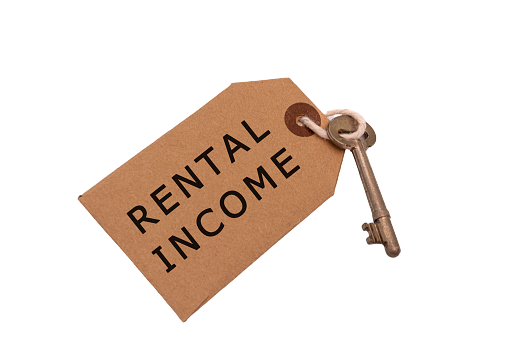Introduction
Real estate investment in Nigeria may seem like a far-fetched dream without the proper guidance and strategies. Yet, once you remember the large population of Nigeria, you realize the endless housing needs of the large population. Hence the need to invest in real estate in Nigeria.
You need to understand the risks and benefits to draw out a meaningful investment strategy. A strategy that will match your needs as well as the real estate ecosystem in Nigeria. Before we go on, let us first look at the benefits and risks of real estate investment.
Benefits Of Investing In Real Estate In Nigeria
- Real estate appreciates: Real estate continuously appreciates over time. When investing in real estate in Nigeria, don’t forget to pay attention to the location. The development rate of an area affects the appreciation value of the real estate in that area. For instance, the land value in Ibeju-Lekki appreciates faster than that in Ikorodu.
- Real estate provides financial stability: Economic fluctuations may affect the value of the real estate, yet it remains one of the least volatile investments that exist. Considering this, and the economic situation in Nigeria, investing in real estate generates income to help you stay financially stable.
- It can serve as a source of passive income: A lot of Nigerians use real estate to generate passive income. An individual with a full-time job can own a house that he uses to get annual or monthly rent.
Risks Of Investing In Real Estate In Nigeria?
- General Market Risk: Every market has its fair share of fluctuations based on the economy and other market trends. Although the real estate market predicts fluctuations, investors should study the market to take the right steps.
- Liquidity Risk: Before starting a real estate investment, consider the depth of the market and the ease to exit the market. Assuming you own stocks, you can easily sell them to get money. But with real estate, it may be more difficult to sell your property to liquidate it for cash. The lack of liquidity that comes with real estate can make you sell a property below the market value. This means that you will sell at a loss to get the property off your hands.
The Evolution Of Real Estate Investment In Nigeria
Real estate investment in Nigeria has evolved in the last 20 years. Before, real estate investments revolved around buying land, waiting for the land to appreciate and reselling it. Afterwards, it became a process where land owners would build houses, flats, and duplexes, and begin renting out. That came with a fair share of troubles with tenants, coupled with the development of land laws and tenancy laws.
It then evolved to buying and selling old and new houses, co-living, selling apartments in full buildings, etc. Soon, prop tech and the long lease will be the future of real estate in Nigeria. As you read further, you will learn the strategies to use to gain good ROI on your investment.
5 Strategies To Invest In Real Estate In Nigeria
Finding the right strategy to start investing in real estate depends on certain aspects.
- Your risk level; is the amount of risk that you are willing to take; and
- The type of real estate you plan to engage in.
Some of the strategies and investments you can begin in Nigeria are:
Rental Properties

If you have the patience to manage a landlord-tenant relationship, then this is a great option for you. It is a straightforward strategy that requires owning a property and renting it out to gain profits. It requires capital for maintenance costs even during vacant months.
You can get a rental property through a lease or outright ownership, depending on the capital available to you.
Pros
- In Nigeria, rental properties appreciate at least every 3 years.
- You will have regular incomes depending on the rental duration; monthly or annually.
- You may enjoy some tax-deductible expenses.
Cons
- Managing tenants is usually tedious.
- A lot of tenants can potentially damage property.
- Vacancies can lead to decreased income.
House Flipping
House flipping involves buying a property in short term to resell at a higher value. It often requires a significant level of experience in the real estate market and property valuation.
House flipping is ideal for people with significant experience in the real estate market and property valuation.
Two types of house flippers exist:
- Those that don’t invest in improving the property before reselling. They buy a property that has an intrinsic value to resell it at a higher cost.
- The other adds value to a property by renovating it before reselling it.
Pros
- A significant amount of capital gets tied up but for only short periods.
- It can offer quick returns if sold within a short period.
Cons
- It requires a deep knowledge of the real estate market.
- Economic fluctuations can affect the expected returns on a property.
Real Estate Investment Groups (REIGs)
This type of investment strategy is ideal for people who want to avoid the hassles of running a rental but still own a rental. REIGs operate like small mutual funds that pull funds to invest in rental properties. It is usually run by a company and you become a part of the REIG by buying a property.
How it works
A company buys or builds a set of apartment blocks that investors can buy to become a part of the REIG. When an investor owns units of the apartment, the company operating the REIG manages everything about the units. This includes general maintenance of the facility, marketing, and rentals. In exchange, the company takes a percentage of the monthly or annual rent for each unit maintained.
This is like buying a property from a real estate developer that manages the property purchased.
Pros
- The investor enjoys a more hands-off approach than owning rentals.
- It provides income and appreciates over time.
Cons
- There is a loss of expected returns when the property is vacant
- The fees and costs are similar to those associated with regular mutual funds.
- An investor faces the risk of leaving his property in the care of incompetent managers.
Cash Investment
This is a low-risk investment that involves placing cash to earn more than it would on its own. It is a short-term obligation usually less than 90 days but can extend to one financial year. In addition, cash investments offer a lower return when compared to other investments.
In real estate, it involves money given to a developer or a property owner for use in the development and management of the property. It is usually for a short period and afterwards, your capital investment will be returned with some interest.
Pros
- It is regarded as a safe investment because it involves very little risk.
- It offers stable returns on a monthly, quarterly, or annual schedule.
- It involves investing funds for only short periods and the money gets converted to cash.
Cons
- It is a short-term, low-risk investment so it offers much lower returns than most other investments.
- If the value of the investment should go below the interest rate, a cash investment becomes less profitable.
It all comes down to this
Through this blog, we can see how real estate has evolved in Nigeria. It is also clear how you can enjoy the growing real estate sector through different types of investments. Though the returns on real estate investments are great, it is important to take the necessary precautions. In a previous blog post, we discussed the common mistakes that a new investor should avoid in real estate. Take all this, and the real estate investment strategies to make the best decision to suit your needs.


